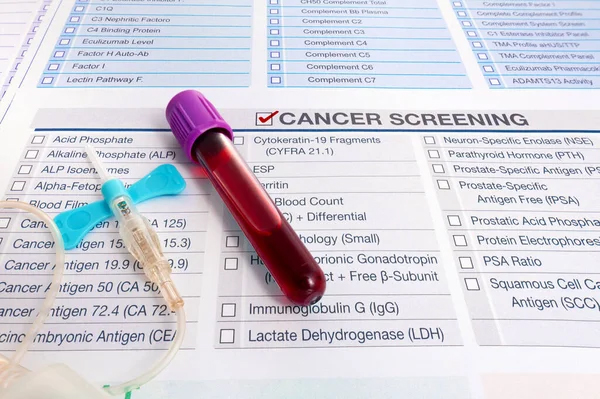Cancer – a powerful enemy that has afflicted many million people – requires early detection for an appropriate treatment. In the field of diagnostics blood tests have evolved to be significant tools in the initial detection and following of several types of cancers.
This informative blog will teach us the blood test methods used in diagnosing cancer, noting their significance, reliability, and the revolutionary move by the German Heart Centre to conduct cancer screening through a single blood test.
Complete Blood Count (CBC):
The starting point for cancer diagnosis is the CBC which is an ordinary blood test that provides important information about general wellbeing. CBC assesses different parts, such as red blood cells, white blood cells, and platelets.
Unnatural deviations in these numbers may indicate underlying health problems like cancer. For instance, the white blood cell (WBC) count could be high, and this is an indication that the body is reacting to an infection or the presence of leukaemia.
Tumour Markers – Detecting Specific Cancer Types:
These are primarily tumour necrosis factors made by cancer cells or created by the body in response to cancer. Additionally, it is diagnosed by blood tests and suggests some types of cancer. Some of the tumour markers are PSA for prostate cancer and CA-125 for ovarian cancer. High levels of these markers do not mean cancer is present but are nevertheless helpful in pointing fingers, requiring additional examination.
Liquid Biopsy – Non-Invasive Cancer Detection:
It is a groundbreaking method used to study pieces of DNA released from cancerous cells into the bloodstream. This non-invasive method allows for a glimpse of the genetic content of tumours which may help in determining specific mutations and tailor specific targeted therapies. Liquid biopsy, in particular, is of great value for monitoring therapy response and minimal residual disease detection.
Genomic Testing:
It consists of analysing the genetic material of cancer cells to find specific mutations or alterations. Such tests can be beneficial in providing personalised treatment strategies. Blood-based genomic testing or liquid biopsy genomic testing is an invasive but continuous monitoring of the malignancy’s genetic profile. It enables the modification of treatment options as the cancer mutates.
Circulating Tumour Cells (CTCs):
CTCs refer to the cancer cells that detach from the primary tumour and travel through the bloodstream by air. CTC detection and analysis using blood tests can give insights into the way cancer spreads; health officials are able to understand how metastatic cancer affects the body. The CTC analysis is invaluable in determining the extent of the aggression as well as the best treatment to be prescribed for the patient.
The German Heart Centre’s Cancer Screening Initiative:
Identifying the fact that early cancer detection is essential, the German Heart Centre has launched an innovative cancer screening program. This program has an initiative to make cancer screening accessible, convenient, and effective with a simple blood test. This blood test performed in the German Heart Centre is a marker specific to different forms of cancer.
The availability of this form of blood test obviates the need for invasive procedures, making it an appealing choice for prospective cancer screening personnel. The choice of the German Heart Centre for cancer screening by the patients enables them to receive sophisticated diagnostics and the professionalism of specialists engaged in the early detection of cancer.
Encouraging routine cancer screening, the German Heart Centre seeks to bring attention to the specific importance of early diagnosis in a better treatment outcome. The initiative conforms to the centre’s integral focus on health care as they not only deal with cardiovascular health but also help in the prevention of cancer.
The Bottom Line!
Therefore, blood tests have grown to be irreplaceable in cancer diagnostics as a source of information about overall health, indications of specific tumour markers, deciphering genetic information, and analysis of immune responses.
The German Heart Centre’s cancer screening initiative is among the earliest of its kind and marks a giant step towards enabling early detection as convenient as possible. Using the force of blood tests as an advantage, people can make proactive decisions to enhance their overall health and implications on the war in fighting cancer illness.

